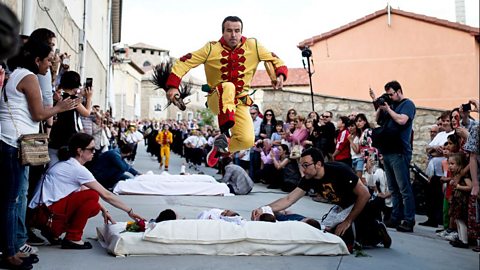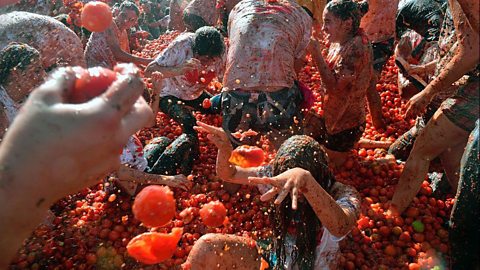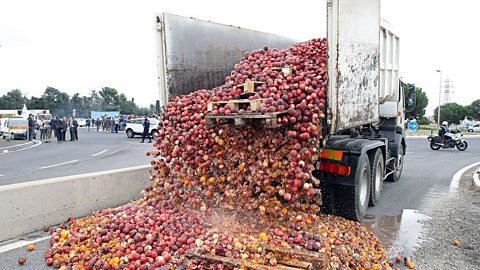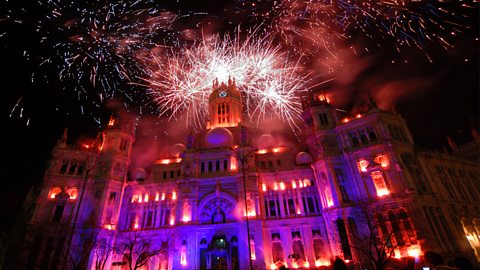Once again, it's time to grab your tents and wellies… it's festival season.
Tickets have been purchased, line-ups have been scrutinized, will it be a wash out or will you run out of sun cream?
When we think of festivals we usually think of music, but this isn't always the case. Here are four quirky non-music festivals from across Europe, featuring some slightly unusual activities.
They aren't for the faint-hearted but will make summer '19 one you'll never forget…
Get carried away
Do your summer plans need a bit of a lift? Head to Sonkajärvi, Finland, in early July where they will be hosting the annual Wife-Carrying World Championships.
People from all over the world take part in the race. This year is the 31st championship and almost 80 couples compete. The course is a 253.5 metre sand track with wet and dry obstacles, including a one metre deep pool.

The sport was inspired by the 19th century legend of Herkko Rosvo-Ronkainen, or Ronkainen the Robber. This infamous thief and his not-so-merry men were accused of stealing food (and wives) from villages - they would then carry the stolen wives on their backs to their forest dwellings. Another theory is that Ronkainen trained his fellow thieves by getting them to carry big heavy sacks on their backs.
There are various wife-carrying techniques which are adopted by the contestants: piggyback, firemen’s carry, or the preferred Estonian-style, where the ‘wife’ hangs upside-down with her legs around the ‘husband's’ shoulders, holding onto his waist.
The race is as grueling for the female contestants as their male carriers, since being carted down a track upside down and over obstacles can carry risks. Helmets are a requirement because of the frequency of drops and falls, ouch.
Unmarried men should not worry, since competitors don't have to carry their own wives. According to the official rules you can also carry your neighbour's wife or a wife you have found "further afield."
Family-friendly
Finland is not the only European country to host unusual festivities over the summer months. Late June in the Spanish village of Castrillo de Murcia sees a blend of Catholic and pagan rituals with El Calacho festival - or, as its known internationally, the Baby Jumping Festival.

El Colacho dates back to the 17th century, and is celebrated on the Sunday after the Feast of Corpus Christi. Some historians believe it started as a fertility ritual.
The celebration is a week long, and concludes with men dressed in red and yellow masks running through the streets as 'devils', insulting and whipping villagers with a horsetail on a stick. Then the big finale, the 'pious' men come to drive out the evil and el salto del calacho, the flight of the devil, begins.
Local and visiting babies born in the previous year are laid on mattresses in the street, and men in elaborate costumes jump over them. Rose petals are sprinkled on the babies and then their parents promptly collect their children, now absolved of original sin. Easy as that. Needless to say, don't try this at home.
The festival is controversial as far as the Catholic Church is concerned, but not because of the dare-devil jumping. The festivities are believed to cleanse the newborns of their original sin, which is conventionally the role of baptism.
Despite the controversy, the town of Castrillo de Murcia continues to celebrate El Colacho every year.
Food fight!
If you enjoy the Baby Jumping, then maybe stick around in Spain this summer for more quirky Spanish festivities.
La Tomatina in Buñol is the biggest food fight in the world, and one of the messiest. Tens of thousands of people arrive in the tiny town for one day to throw tomatoes at one another.
The festival started in 1945, when a street fight broke out. A rowdy group started to throw vegetables, people retaliated, and thus began a food fight. The following year on the same day they did it again, and La Tomatina was born.

This festival, too, has seen plenty of opposition. It’s been broken up by the police over the years and was even banned in the early 1950s. But, people love a food fight and the festival lived on.
In 2016 the festival received some serious criticism. At the time, Nigeria was suffering a state of emergency when 80% of their annual tomato crop was lost. It begged the question, is the festival just a huge waste of food?
Locals say not. Apparently, the tomatoes used are on the turn and about to go rotten. They are bought cheaply from the Extremadura region of Spain, are much lower quality and almost inedible.
Word of warning: squash the tomatoes before throwing them - the hit will be less painful.
Did someone say cheese?
If you're into your food, the annual unofficial Cooper’s Hill Cheese Rolling Festival takes place in Brockworth, Gloucestershire, every May.
Despite health and safety fears leading to the official competition being cancelled in 2010, cheese rollers continue to throw themselves down the near-vertical hill in pursuit of a huge Double Gloucester.

Despite the aim of the race being to catch the seven-to-nine-pound wheel of cheese, this isn’t actually possible. The cheese is given a one second head start and reaches speeds of up to 70 mph, much too fast for a flailing competitor to catch up with. Instead, the winner is the first to reach the bottom and the cheese is awarded as the prize.
No-one seems to know where cheese rolling originated. Some say the tradition goes as far back as the ancient Romans, others say it was a 15th century requirement to maintain grazing rights. Another theory is that it's of pagan origin when bundles of burning brushwood were rolled down the hill, to represent the birth of the new year after winter.
Wherever it came from, people come from all over the world to compete in and watch the popular event. So, if you are heading there next year, brie prepared…
This article was published in May 2019
Five unusual protests in history
For years people have found interesting and creative ways of getting their voices heard.

Film festival winners: Cannes you do the quiz?
How well do you know your film trivia? Take this quiz to find out.

Customs and festivals - GCSE Spanish
Find out about the different festivals and customs of Spanish-speaking countries.
